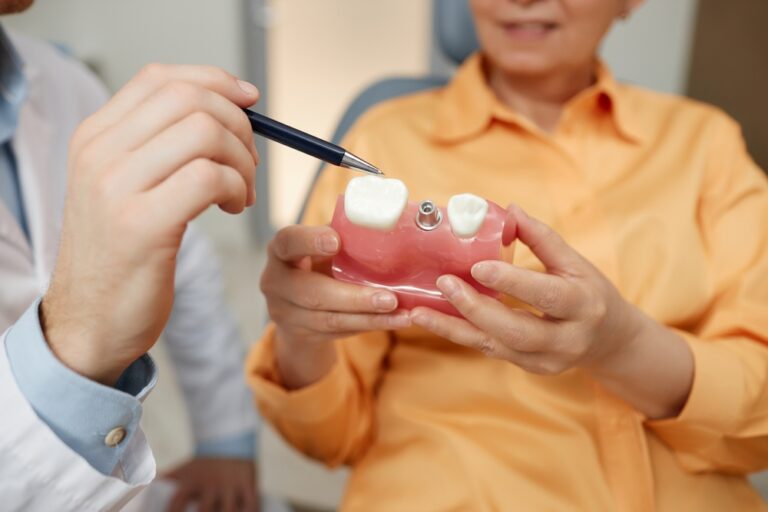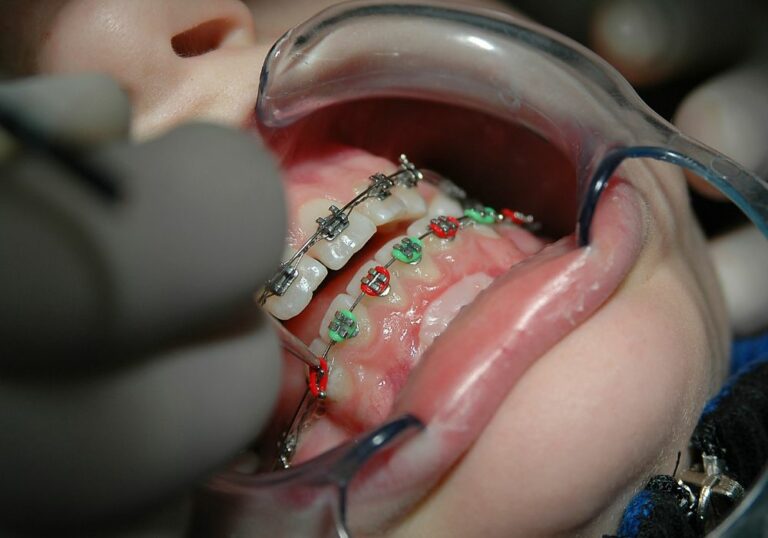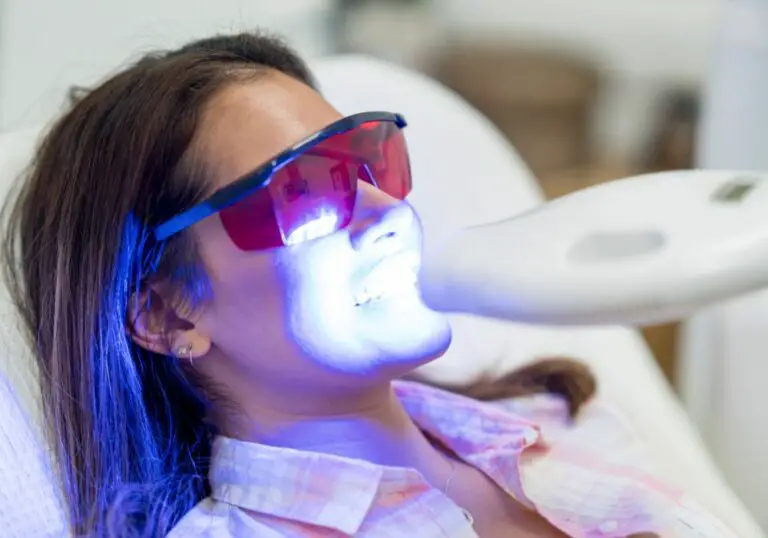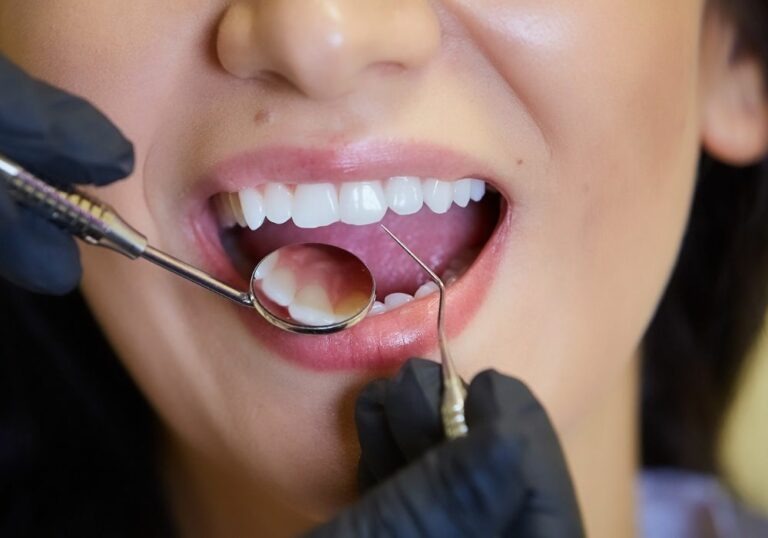Have you ever wondered if your gums can get infected even if you have no teeth? The answer is yes, your gums are still at risk of infection even if you have no teeth. Gum infections can occur due to a variety of reasons, including poor oral hygiene, certain medications, and medical conditions such as diabetes.
When you have no teeth, your gums are still exposed to bacteria and plaque buildup. If not properly cleaned, the bacteria can cause gum infections such as gingivitis and periodontitis. Gingivitis is the inflammation of the gums, while periodontitis is a more severe form of gum disease that can lead to tooth loss if left untreated. It is important to maintain good oral hygiene practices such as brushing and flossing regularly to prevent gum infections.
Understanding Gum Infections
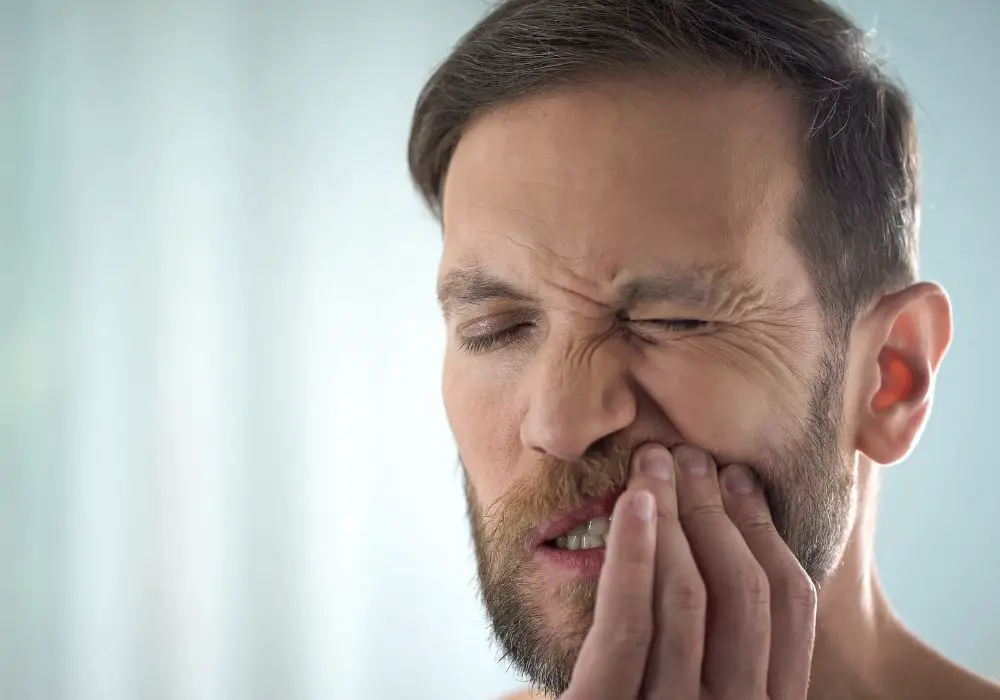
Gum infections, also known as periodontal disease, are a common problem affecting many people. While having teeth is a risk factor for gum infections, it is possible to get an infection even if you have no teeth. Gum infections can cause damage and inflammation to the gums and jaw, leading to tooth loss, bone damage, and other complications.
Gum infections generally arise from poor dental hygiene over time, as this allows bacteria to build up and form plaque on the teeth and gums. If left untreated, this can lead to gingivitis, the early stage of gum disease. Symptoms of gingivitis include red, swollen, and bleeding gums, as well as bad breath.
If gingivitis is not treated, it can progress to periodontitis, a more severe form of gum disease. In periodontitis, the gums pull away from the teeth, forming pockets that become infected. The body’s immune system responds by attacking the bacteria, leading to inflammation and damage to the gums and bone that support the teeth.
Risk factors for gum infections include smoking, diabetes, stress, and certain medications. Genetics may also play a role in the development of gum disease.
Preventing gum infections involves practicing good dental hygiene, including brushing twice a day, flossing daily, and visiting your dentist regularly for cleanings and checkups. In some cases, your dentist may recommend additional treatments, such as scaling and root planing or antibiotics, to treat gum infections.
In summary, gum infections can occur even if you have no teeth, and can cause serious damage if left untreated. Practicing good dental hygiene and seeking treatment early can help prevent and treat gum infections.
Gum Infections Without Teeth
If you have no teeth, you might think that you are safe from gum infections. However, this is not necessarily true. Even if you have no teeth, you can still develop gum infections, and they can be just as painful and dangerous as they are for people who have teeth.
Gum infections without teeth are usually caused by bacteria that build up on the gums and soft tissues in the mouth. These bacteria can cause inflammation and swelling, which can lead to pain, discomfort, and even bleeding. In some cases, the infection can spread to other parts of the body, causing serious health problems.
To prevent gum infections without teeth, it is important to maintain good oral hygiene. This includes brushing your gums and tongue with a soft-bristled brush, flossing regularly, and using a mouthwash to kill bacteria. It is also important to visit your dentist regularly for checkups and cleanings, even if you have no teeth.
If you do develop a gum infection without teeth, there are several treatment options available. Your dentist may prescribe antibiotics to kill the bacteria and reduce inflammation. You may also need to use a special mouthwash or gel to help soothe the gums and promote healing.
In some cases, your dentist may recommend surgery to remove infected tissue or to clean out any pockets of bacteria. This can be a more invasive procedure, but it is often necessary to prevent the infection from spreading and causing further damage.
In summary, gum infections can occur even if you have no teeth. To prevent these infections, it is important to maintain good oral hygiene and visit your dentist regularly. If you do develop an infection, there are several treatment options available to help you recover.
Causes of Gum Infections in Toothless Mouths

If you have lost all of your teeth, you may think that you are no longer at risk for gum infections. However, this is not the case. Gum infections can still occur in toothless mouths, and they can be caused by a variety of factors.
One of the most common causes of gum infections in toothless mouths is poor oral hygiene. Even if you do not have any teeth, it is still important to clean your gums and tongue regularly to remove bacteria and food particles. If you do not clean your mouth properly, bacteria can build up and cause an infection.
Another cause of gum infections in toothless mouths is denture use. If your dentures do not fit properly, they can rub against your gums and cause irritation. This irritation can lead to an infection if it is not treated promptly.
Dry mouth is another risk factor for gum infections in toothless mouths. Saliva helps to flush bacteria out of your mouth, so if you do not produce enough saliva, bacteria can build up and cause an infection.
Other factors that can increase your risk of gum infections in toothless mouths include smoking, poor nutrition, and certain medical conditions such as diabetes.
To prevent gum infections in toothless mouths, it is important to practice good oral hygiene, visit your dentist regularly, and ensure that your dentures fit properly. If you experience any symptoms of a gum infection, such as redness, swelling, or pain, be sure to see your dentist right away.
Symptoms of Gum Infections Without Teeth
If you have no teeth, you may assume that you cannot get a gum infection. However, this is not true. Gum infections can still occur even if you have no teeth. Here are some symptoms to look out for:
- Swollen Gums: Swollen gums are a common symptom of gum infections. They may be red and tender to the touch.
- Bleeding Gums: If your gums bleed when you brush your teeth or eat, it could be a sign of a gum infection.
- Painful Gums: Gum infections can cause pain in your gums. The pain may be mild or severe.
- Bad Breath: Bad breath is a common symptom of gum infections. It is caused by the bacteria that are present in your mouth.
- Pus: If you notice pus coming from your gums, it is a sign that you have a gum infection.
If you experience any of these symptoms, it is important to see a dentist as soon as possible. A gum infection can lead to serious health problems if left untreated.
Prevention of Gum Infections Without Teeth

Even if you have no teeth, it is still important to take care of your gums to prevent gum infections. Here are some tips to help keep your gums healthy:
1. Regular Brushing and Flossing
Brush your gums gently twice a day with a soft-bristled toothbrush and fluoride toothpaste. Flossing once a day can also help remove plaque and food particles that can cause gum infections.
2. Use an Antimicrobial Mouthwash
Using an antimicrobial mouthwash can help kill bacteria in your mouth and prevent gum infections. Look for a mouthwash that contains chlorhexidine, which is effective against a wide range of bacteria.
3. Quit Smoking
Smoking can increase your risk of gum disease and other oral health problems. If you smoke, quitting can help improve your overall oral health and reduce your risk of gum infections.
4. Eat a Healthy Diet
Eating a healthy diet that is rich in vitamins and minerals can help strengthen your immune system and reduce your risk of gum infections. Avoid sugary and acidic foods, which can damage your teeth and gums.
5. Visit Your Dentist Regularly
Regular dental checkups and cleanings can help detect and prevent gum infections. Your dentist can also provide advice on how to keep your gums healthy and recommend treatments if necessary.
By following these tips, you can help prevent gum infections and maintain good oral health, even if you have no teeth.
Treatment Options for Gum Infections Without Teeth
If you have no teeth and are experiencing gum infections, there are still treatment options available to you. Without teeth, it may be more difficult to control the levels of bacteria in your mouth, but it is still important to maintain good oral hygiene practices to prevent further infection.
Here are some treatment options for gum infections without teeth:
1. Antibiotics
Your dentist or doctor may prescribe antibiotics to treat the infection. Be sure to take the full course of antibiotics as prescribed, even if you start to feel better before the medication is finished.
2. Dental Procedures
If you have gum abscesses or other serious gum infections, your dentist may need to perform dental procedures to remove any contaminants and drain the abscess. This may involve scaling and root planing, which is a deep cleaning procedure that removes plaque and tartar from the teeth and gums.
3. Home Remedies
While home remedies may not be as effective as antibiotics or dental procedures, they can still provide some relief from gum infections. Here are a few home remedies you can try:
- Saltwater rinse: Mix a teaspoon of salt with a cup of warm water and rinse your mouth with the solution for 30 seconds.
- Tea tree oil: Apply a drop of tea tree oil to your toothbrush and brush your gums gently.
- Aloe vera: Apply a small amount of aloe vera gel to your gums to reduce inflammation.
4. Prevention
Prevention is key to avoiding gum infections. Even without teeth, it is important to maintain good oral hygiene practices. Here are some tips to prevent gum infections:
- Brush your gums and tongue twice a day with a soft-bristled brush.
- Floss daily to remove food particles and plaque from between your teeth and gums.
- Use an antimicrobial mouthwash to kill bacteria in your mouth.
- Visit your dentist regularly for check-ups and cleanings.
By following these treatment options and prevention tips, you can help prevent and treat gum infections even without teeth.
Complications of Untreated Gum Infections

Ignoring gum infections can lead to serious complications, even if you have no teeth. Here are some of the potential risks of untreated gum infections:
- Periodontitis: If left untreated, gum infections can progress to periodontitis. This is a severe gum infection that can damage the soft tissue around teeth and destroy the bone that supports them. This can cause teeth to loosen or lead to tooth loss.
- Abscesses: Gum infections can lead to abscesses, which are pockets of pus that form around the root of the tooth. These can be very painful and can cause swelling in the face and neck. In severe cases, the infection can spread to other parts of the body and become life-threatening.
- Systemic Inflammation: Gum infections can cause inflammation throughout the body, which can lead to other health problems. Research has linked gum disease to an increased risk of heart disease, stroke, and diabetes.
- Difficulty Eating and Speaking: Gum infections can make it difficult to eat and speak. This can lead to malnutrition and social isolation, which can have a negative impact on your overall health and well-being.
It’s essential to seek treatment for gum infections, even if you have no teeth. Your dentist or doctor can prescribe antibiotics to clear up the infection and prevent further complications. They may also recommend deep cleaning or scaling and root planing to remove plaque and bacteria from the teeth and gums.
In summary, untreated gum infections can lead to serious complications, even if you have no teeth. Seeking treatment as soon as possible can help prevent further damage and improve your overall health.
Importance of Regular Dental Check-Ups
Regular dental check-ups are important for maintaining good oral health. Even if you have no teeth, it is still important to visit your dentist regularly. During these check-ups, your dentist can examine your gums and the tissues in your mouth to check for any signs of infection or disease.
Here are some reasons why regular dental check-ups are important:
Early Detection of Gum Infections
Gum infections can occur even if you have no teeth. Regular dental check-ups can help your dentist detect any signs of gum infection early. This can help prevent the infection from spreading and causing further damage to your gums and mouth.
Preventing Tooth Decay
Even if you have no teeth, it is still important to maintain good oral hygiene. During your dental check-up, your dentist can examine your mouth for any signs of tooth decay or other dental problems. They can also provide you with tips on how to maintain good oral hygiene, such as brushing and flossing techniques.
Maintaining Overall Health
Good oral health is linked to overall health. Regular dental check-ups can help prevent gum infections and other oral health problems that can lead to more serious health issues. For example, gum disease has been linked to heart disease, stroke, and other health problems.
Dental Cleaning
During your dental check-up, your dentist will also perform a dental cleaning. This involves removing any plaque or tartar buildup on your teeth and gums. This can help prevent gum infections and other oral health problems.
In conclusion, regular dental check-ups are important for maintaining good oral health, even if you have no teeth. They can help detect and prevent gum infections, tooth decay, and other oral health problems. They can also help maintain overall health by preventing more serious health issues.
Oral Hygiene Practices for Toothless Mouths
Maintaining good oral hygiene is essential for everyone, even for those who have lost their teeth. Without teeth, your gums are more susceptible to infections and diseases. Here are some oral hygiene practices that you should follow to keep your gums healthy.
Brush Your Gums
Brushing your gums is an essential part of oral hygiene, even if you don’t have teeth. Use a soft-bristled brush or a washcloth to gently clean your gums, cheeks, and tongue. This will help remove any food particles and bacteria that may be present in your mouth.
Clean Your Dentures
If you wear dentures, it’s important to clean them regularly to prevent infections and bad breath. Remove your dentures and clean them with a denture brush and mild soap or denture cleaner. Rinse them thoroughly with water before putting them back in your mouth.
Use Fluoride Oral Rinse
Fluoride oral rinses can help prevent tooth decay and gum disease. Use an alcohol-free rinse to avoid irritation, and swish it around your mouth for at least 30 seconds before spitting it out. Don’t eat or drink anything for at least 30 minutes after using the rinse.
Visit Your Dentist Regularly
Regular dental checkups are important, even if you don’t have teeth. Your dentist can check your gums for any signs of infection or disease and provide you with tips on how to maintain good oral hygiene.
By following these oral hygiene practices, you can keep your gums healthy and prevent infections and diseases. Remember to brush your gums, clean your dentures, use fluoride oral rinse, and visit your dentist regularly.
Frequently Asked Questions
Can gums without teeth get infected?
Yes, gums without teeth can still get infected. Gum disease, also known as periodontal disease, is caused by bacteria that can build up on the gums and cause inflammation and infection. Even if you don’t have teeth, it’s important to maintain good oral hygiene to prevent gum disease.
What happens to gums with no teeth?
When teeth are removed, the bone that supports them begins to shrink, which can cause the gums to recede. This can make it more difficult to keep the gums clean and healthy, and can increase the risk of gum disease.
Can missing teeth cause gum disease?
Missing teeth can contribute to the development of gum disease. When teeth are missing, the bone that supports them begins to shrink, which can cause the gums to recede and become more vulnerable to infection.
Can you still get an abscess with no teeth?
Yes, it is possible to get an abscess in the gums even if you don’t have teeth. A gum abscess is a pocket of infection that can form on the gums and cause pain, swelling, and other symptoms. If you think you may have a gum abscess, it’s important to see a dentist as soon as possible.
Why do my gums hurt in one spot?
Gum pain in one spot can be caused by a variety of factors, including injury, infection, or irritation. If you are experiencing gum pain, it’s important to see a dentist to determine the underlying cause and receive appropriate treatment.
How to relieve gum pain?
To relieve gum pain, you can try rinsing your mouth with warm salt water, applying a cold compress to the affected area, or taking over-the-counter pain medication. However, it’s important to see a dentist if your gum pain persists or is accompanied by other symptoms.

